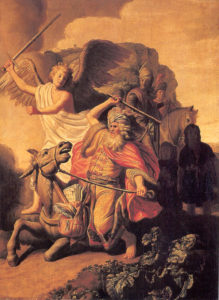Genesis 26:24 records an interesting phrase – “For my servant Abraham’s sake.”
In this account, we see that Isaac, the son of Abraham, is assured of God’s blessings because of Abraham. Not only does this signify the faithfulness of God in keeping the covenant, God made with Abraham (Genesis 22:16-19) in the same place (Beersheba) where Isaac was now (Genesis 26:23), but it also assures that God blesses others for the sake of those who serve him. Isaac was not blessed on account of his own merit, but because of God’s faithfulness to Abraham, who was faithful in serving God.
Points to ponder:
Jesus, the Son of God, who was prophesied as the Servant of the Lord (Zechariah 3:8; Isaiah 42:1), took on the form of a servant (Philippians 2:7) and demonstrated that we ought to serve one another just as he served – in action and not just words (John 13:14-15; Matthew 20:28).
For the sake of Abraham, Isaac (and subsequently the nation of Israel) was blessed.
For the sake of Jesus, the Servant Son of God, all of the nations (Matthew 12:21; Colossians 1:27) are blessed.
Remember, the greatest accolade that one can receive is the title of a ‘good and faithful servant.’ Let us live our lives in a manner looking forward to the greatest honor we can receive, when we face Jesus face to face, when he says “Well done, my good and faithful servant. Enter into the joy of thy Lord.” (Matthew 25:23).
The questions we need to ask ourselves then are:
– Are we servants of the Lord?
– Are others around us (especially our family – both natural and spiritual/church) blessed for our sake by the Lord?
In other words, can God say “I will bless so and so for your sake, because you are my (good and faithful) servant?” Now don’t leave this question unanswered.
Genesis 26:24 (KJV)
24 And the Lord appeared unto him the same night, and said, I am the God of Abraham thy father: fear not, for I am with thee, and will bless thee, and multiply thy seed for my servant Abraham’s sake.




